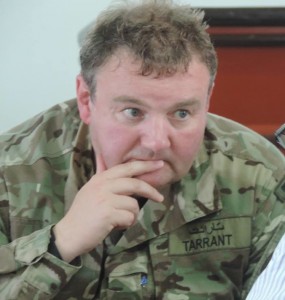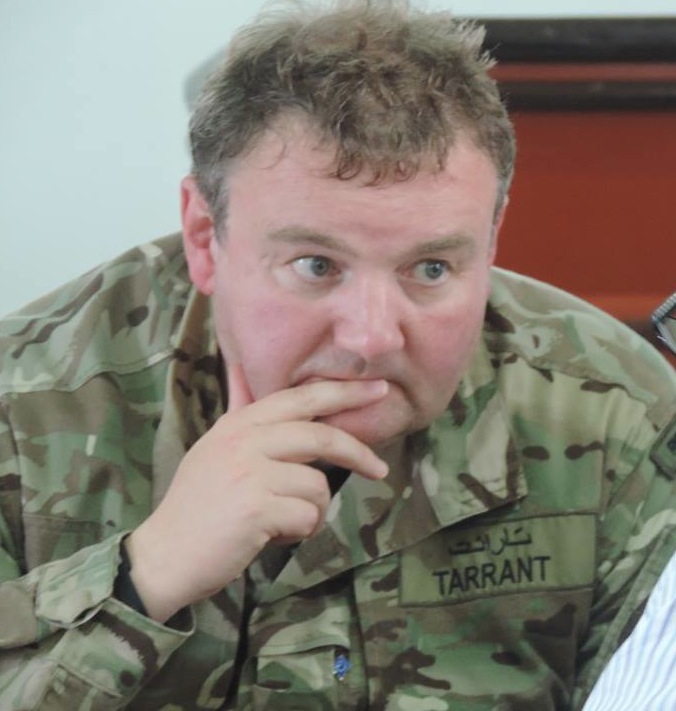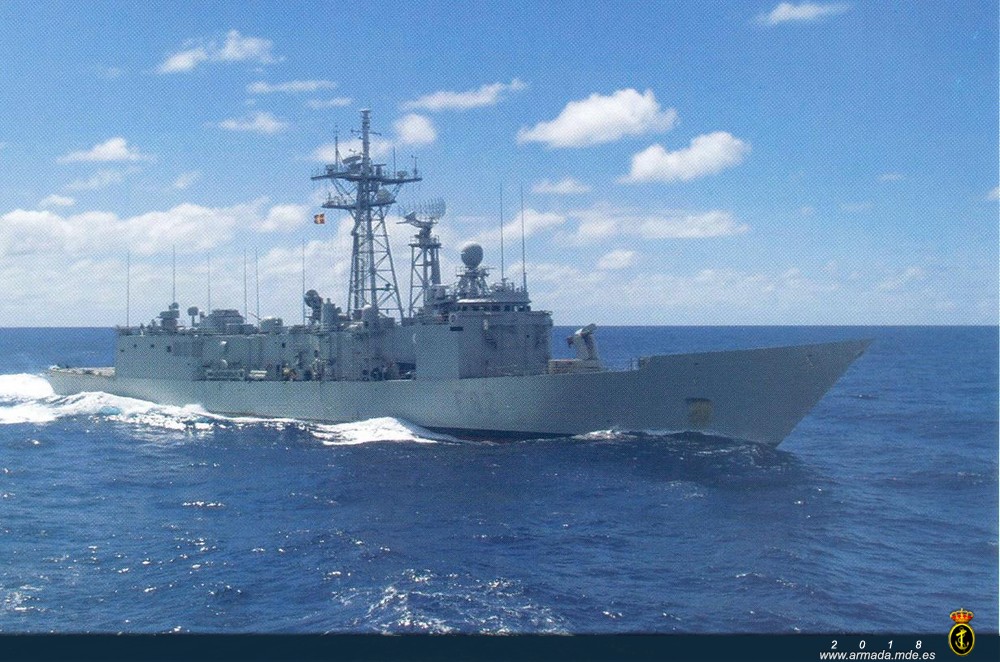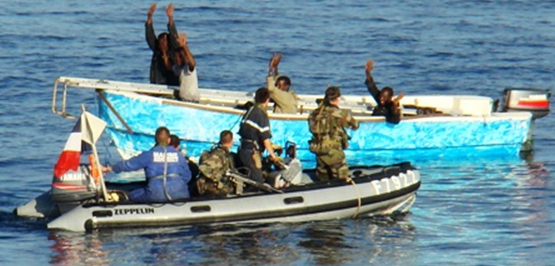The pirate business model according to Bob Tarrant (Atalanta)

(BRUSSELS2 interview) Passing through Brussels, Rear Admiral Tarrant, Operations Commander of the EU Naval Mission in Somalia (EUNAVFOR Atalanta), took a moment to answer B2's questions, after a press briefing. At first glance, far from the vision that one can have of an admiral, one imagines more Bob Tarrant with his hands in the grease... leading his troops than behind a desk talking to journalists. Direct, frank, he nevertheless develops — as soon as it is a question of approaching the economic interests of the mission — his global vision of the situation. In particular on the "business model" of pirates, a subject that particularly interested us, such as the need to maintain a maritime force in the area.
Has piracy disappeared from the area?
The pirates still exist and they are very active, there are still 54 hostages who are being held together on the Naham 3. Some were brought on board after the Albedo sank. This is done in horrible conditions. Because these people do not see the humanitarian side at all. They always hold these people hoping for one thing: ransoms, money. All the motivations for piracy are still very much alive. Their communities apparently have no alternatives on how they live.
Does this mean that piracy can resume?
We have quite a bit, but not total, control of the sea. (...) The embers to start the fire are still there. If we let them restart, everything will start again. The groups are independent of each other. We have identified three main ones. From what we know, (the pirates) still have the resources to continue to operate. What we are doing has made it harder for them to exploit their business model. But it still exists. And if the conditions return, they will return to piracy.
Piracy is their only activity?
If we look at the "big fish" behind the "small" pirates, they are criminals. They think about how to make money criminally and most easily. And piracy is a method. It wouldn't surprise me if they were involved in smuggling or other activities at sea or on land. If we make life easy for them at sea, I'm sure they'll revert to piracy. Look at the gangs they have, the sums that are paid in ransoms... that's enough.
How much do you estimate their resources exactly?
These resources come from ransoms. I am not an expert. But they had significant sums, hundreds of millions of euros in ransoms, maybe 150 million. Including 10 million recently. And this sum alone makes it possible to launch very, very many groups of pirates.
(*) “ With the mission to destroy logistics bases on land (carried out in May 2012) we reached investors; they will not have the ransoms and therefore no return on the money they invested. Each group of pirates (pirate action group) costs money, several thousand dollars if not more, between fuel, water, food, ships, pirates. With the destruction mission carried out last year, they can no longer go to the beaches but must go further inland. This makes the pirate business model much less attractive to investors. »
What future for the mission after 2014? Should the mission be extended?
The problem of piracy should not be underestimated. We must support a force that will be able to deter and disrupt their action. It is in Somalia's interest to have a secure sea. And since they can't do it themselves... The force must stay in place too because the action of the pirates, the types of groups and the money they had created a lot of instability in Somalia. It is also in Somalia's interest to benefit from a secure environment which does not destabilize the country. If piracy were still at its peak: most other EU activities in Somalia would not work.
Are other means necessary?
To carry out our mission we need this level of ships — four ships — plus the associated ones (Russia China, NATO, Korea). The reason for this number: it is the threat of piracy which may resurface but also because we will have to cover a huge area. To keep a ship in place near the coast of Somalia, permanently, other ships are needed to supply and support it. This is a difficult work. And we are counting on the great support given to us by the Member States. They are very favorable because piracy touches the heart of the interests of the European Union. It affects the humanitarian position of the EU in the sense that it provides food and protection as is the case on the ships of the World Food Program (WFP). But it also has a very significant impact on trade, which goes from Europe to the Middle East and Asia and, in the other direction, through the Gulf of Aden. It is an essential interest of the EU.»
Difficulties in maintaining the mission budget or finding ships in these times of crisis?
« I have enough money to fight against piracy. (...) We have no problem with funding or finding ships. The threat against which the EU protects itself is a threat to prosperity. If the industry loses confidence and no longer sends ships through the Gulf of Aden, it will increase the costs of trade and transport from Europe, very significantly. So it's essential. And member states have many interests in always having this force in the region. Right now I think we're asking for the right level of forces. The Member States, despite the (budgetary) difficulties, are doing a lot, whether with maritime means (ships) or with men. We have excellent sailors in Europe. And we rely on them. »
(*) Item added by the spokesperson
Also read the tag Piracy on B2
and on C2:



Comments closed.